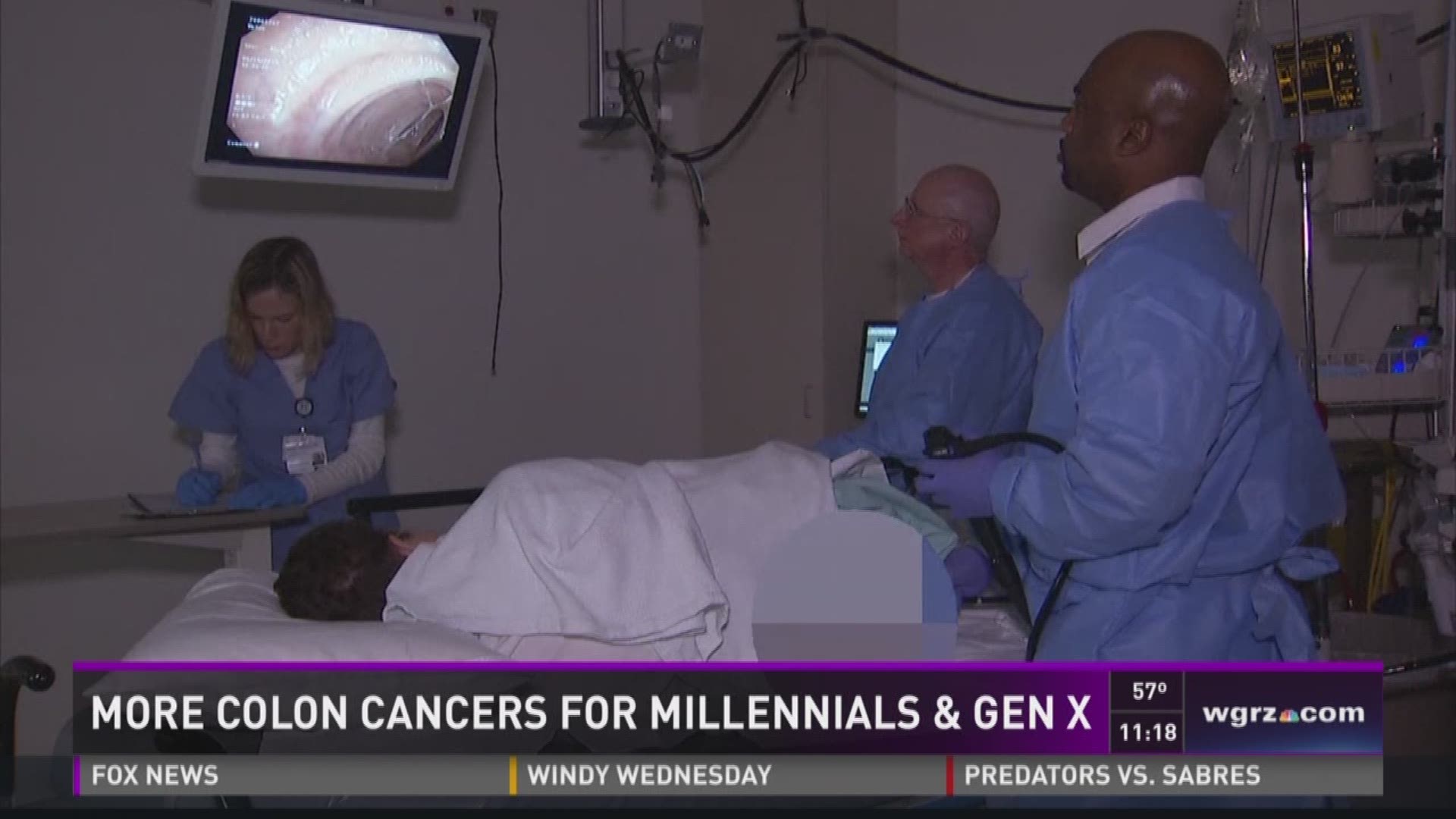Buffalo, NY - .. A newly-released study is confirming the rather surprising trend of more cases of colorectal cancers in millennials and Gen-Xers. It's a significant change from the prevailing thought that such cancers hit later in life. 2 on Your Side spoke with a colorectal cancer specialist at Roswell Park about possible reasons for the increase.
Turning age 50 traditionally means a rather uncomfortable but very necessary preparation and procedure. It's the colonoscopy to screen for potential colon or rectal cancers. But what about someone like Kevin Hayes who spoke to 2 on Your Side just last year as a local participant in the "UNDY Run" benefit for colon cancer awareness and research. He's in early 30's. Kevin said "I went through surgery and chemo and I am clear."
Kevin's story represents part of the surge in such cases. American Cancer Society researchers now say people in their 20's and 30's have double the risk for colon cancer as their parents at the same age. That rate has grown over the past four decades. It contrasts with the colonoscopy cutting the overall cancer rate for older adults.
Colon - Rectal Oncologist Dr. Patrick Boland of Roswell Park knew their were past indications of this younger trend. But what could be causing it? For starters he says diet which runs parallel with increasing obesity rates.
"High in red meat, high in processed foods, low in fiber, low in fruits and vegetables...that there's really a higher risk of colon cancer in that group...but that's not the whole story."
Another factor is perhaps too much time on-line or just on the couch. Dr. Boland says a sedentary lifestyle doesn't help.
And Dr. Boland says do some genetic research. "It's important to know your family medical history. To know does anybody in my family have colon cancer or polyps."
Finally he stresses don't ignore any symptoms. "You know the patient who has rectal bleeding who's in their 20's. Or they have this persistent bloating and they're only in their 30's. We need to think about...have that on radar that potentially they should get in to have a colonscopy or have some further work up anyways."

